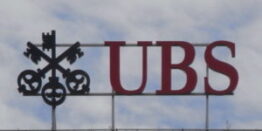
Hennion Walsh Inc. a broker dealer headquartered in Parsippany New Jersey has been censured and fined $165,000.00 by Financial Industry Regulatory Authority (FINRA) based upon the firm’s consent to findings that (1) Hennion Walsh’s registered representatives made unsuitable investment recommendations concerning the switching of unit investment trusts in customers’ accounts and (2) Hennion Walsh neglected to supervise the trading practices of its registered representatives with a view towards ensuring that their investment recommendations were suitable for customers. Letter of Acceptance Waiver and Consent No. 2013039202501 (Jan. 23, 2019).
According to the AWC, between December 11, 2011 and December 31, 2016, the firm sold customers unit investment trusts, which are investment companies offering redeemable units of a securities portfolio. FINRA noted that with unit investment trusts, there is no active management, and at a certain time after the initial offering (typically two years), the securities are sold so investors receive the proceeds.
Evidently, proprietary unit investment trusts were sponsored by Hennion Walsh which had been sold to customers through the firm’s brokers. Supposedly, those unit investment trusts offered by the firm contained about twenty-four portfolio strategies, and there were a series of unit investment trusts issued that contained the same portfolio strategy. FINRA indicated that each series contained virtually the same objectives for investing and same investment composition. The firm reportedly charged as much as 3.95 percent for the unit investment trust transactions, the majority of which was assessed as a deferred sales charge.
Apparently, throughout the December 11, 2011 and December 31, 2016 timeframe, twenty nine of Hennion Walsh’s brokers made six hundred forty-five recommendations to customers concerning the switching of proprietary unit investment trust products in four-hundred thirty eight investment accounts. The AWC stated that the transactions involved a switch of unit investment trusts in the same series to other unit investment trusts in the same series. Critically, FINRA stated that the unit investment trusts contained in the same series had very similar, if not the same, portfolios and objectives for investing. As a result of the registered representatives’ execution of those transactions, customers were assessed $305,438.83 in unwarranted sales charges.
The AWC stated that throughout this time, the firm was required to abide by FINRA Rule 2111 and National Association of Securities Dealers (NASD) Rule 2310, which mandated that the brokers have an adequate basis to conclude that the securities transactions they recommend are appropriate for customers based on the information obtained about those transactions through the due diligence process. Specifically, FINRA mandated that the firm and brokers comprehend the possible benefits and risks pertaining to the strategy or securities recommended to customers.
Nevertheless, Hennion Walsh and its brokers failed to consider the detrimental effect of sales charges that would be assessed through the switching of unit investment trust positions in the customers’ accounts. Consequently, FINRA stated that the firm and brokers did not possess any adequate foundation for recommending the switching of the unit investment trusts from one series to other unit investment trusts in the same series. FINRA found that firm’s conduct was violative of FINRA Rules 2010 and 2111 as well as NASD Rule 2310.
Moreover, FINRA stated that the firm neglected to establish and implement an adequate system for supervising the brokers’ unit investment trust switches. Evidently, there was no adequate guidance provided to the brokers by the firm concerning the suitability issues present in switching unit investment trusts in the same series with other unit investment trusts in the same series. Further, the firm purportedly implemented a procedure mandating that customer’s sign authorizations for the unit investment trust exchanges; however, this policy had not been enforced.
The AWC further revealed that a trade-alert system was utilized by Hennion Walsh which identified switching of unit investment trusts; however, the firm neglected to guide its supervisory personnel on effectively using those procedures in the evaluation of the brokers switching of unit investment trusts.
Supposedly, the responsibilities of reviewing brokers’ daily trading activities was placed on the shoulders of a supervisor who had not been provided fundamental trainings on analyzing series-to-series unit investment trust switches. Moreover, that supervisor reportedly failed to consider the costs incurred by customers by the brokers’ executing those exchanges prematurely. Essentially, the suitability concerns for early unit investment trust switching were present; however, the supervision system utilized by the firm was not adequate in resolving those concerns.
The AWC stated that the firm’s failure to create and implement a reasonable supervision system led brokers to make unsuitable switches of unit investments trusts. Consequently, FINRA found the firm’s supervisory failures violative of FINRA Rules 2010 and 3110 as well as NASD Rule 3010(a).








